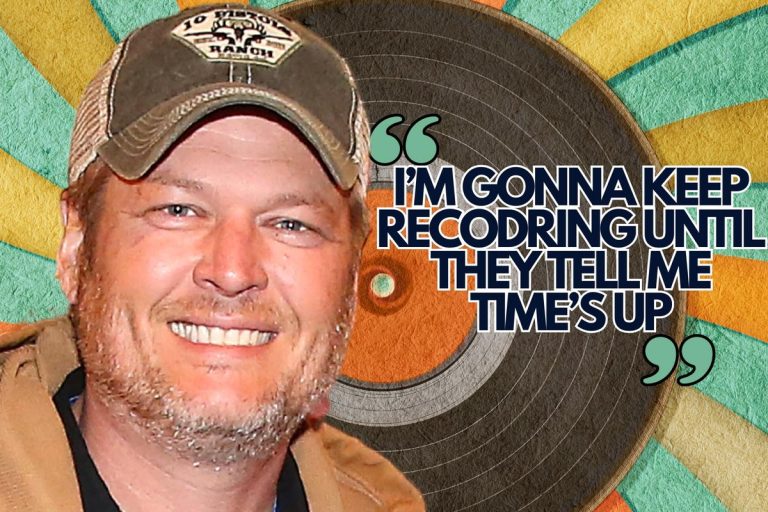One of the most intriguing and little-known corners of the music industry’s vast, seedy underbelly centers around a bunch of rare records released between 1976 and 1978 for one purpose only: Scamming the IRS. During this two-year period, a mix of crafty and bumbling crooks took advantage of a tax loophole that — not unlike the plot hatched in Mel Brooks’ The Producers — allowed labels to write off losses on albums that had supposedly flopped.
Writer Aaron Milenski, in his contribution to author Eilon Paz’s new compendium on record collectors and collecting, Dust and Grooves Vol. 2: Further Adventures in Record Collecting, digs into the history of these tax scam labels, explaining how the fraud worked and highlighting some of the most notable and intriguing releases. As Milenski notes, many of these albums comprised unreleased recordings or outtakes, sometimes by recognizable names (Sly Stone, Richard Pryor, and Charlie Daniels all had recordings released on tax scam labels). But often, carrying out this scheme required recording and releasing new music — and the most adept exploiters of this tax loophole knew that the best way to not arouse suspicion was to enlist musicians and artists who could actually play.
As a result, these tax scam labels wound up creating catalogs filled with fascinating albums that span countless genres, from hard rock, R&B, and loner folk to funk, psych, and prog. In the decades since, rare copies of these albums have become highly sought-after grails for collectors. In the excerpt below (which has been edited and condensed from the version you’ll find in Dust & Grooves Vol. 2), Milenski digs into the rise and fall of these tax scam labels, the inner workings of the con, and that perennial tension in the music business between profit and art.
In early 1976, notorious shyster Morris Levy, known for mob connections and running a successful record label without paying a cent to any artists on it, made a discovery. He couldn’t claim significant tax losses for low-selling records on his Roulette label. Still, if he created an entirely new label that lost (or appeared to lose) bundles, this could offset any profits he made through Roulette. Voila: Tiger Lily Records was born!
Word somehow spread, and soon, there was an abundance of similar labels: Guinness, Dellwood, Western Hemisphere, Album World, Tomorrow, Illusion, C.C., Rocking Horse, Tribute, Baby Grand, and TSG. By 1978, these labels were no more. The loophole had been closed because of a subsequent court case involving the obvious tax fraud perpetrated via C.C. Records showed that the scheme was unsustainable. Yet, during two glorious years, a plethora of fascinating albums were unleashed on the world. Collectors have been scurrying to find what are now known as tax scam records ever since.
To create a music label for maximum cheat-the-IRS effect, Levy had to press up some actual vinyl, and he and his cronies produced as many different individual releases as they could in a short period. How did they do this? Take whatever is in your vault: canceled releases, in-progress releases that will now instead be relegated to obscurity, and demo tapes that were rejected or still needed to be assessed. Then make a few physical copies of all these records, dump them into cutout bins and warehouses, maybe even destroy some of them, and with clever accounting, claim that you released thousands and thousands of albums while selling virtually nothing.
In most cases, the artists had no idea their recordings were ever released. A good example is the Snowball Album on Guinness. It’s an excellent pop-rock LP with a few mildly psychedelic moments, recorded in 1971 by Joey Carbone and Richie Zito, years before they would succeed as musicians and producers. When I discovered this record, I found an email address for Joey Carbone and wrote him about it. Within minutes, I got a reply saying, “This was released?” In some other cases, the artists knew about the project and could use it as a tax dodge of their own. They could claim losses for the costs of studio recording and musical equipment. In some cases, the label gave them the opportunity to market their own release on a tiny scale. There is an existing video of John Scoggins, whose power pop album is one of Tiger Lily’s very best releases, hawking it on a local TV show.
Unintentional as it may be, these records are tailor-made for collectors. They are essentially major label-quality, some are by well-known artists, and some are very good (or at least very weird), yet they are as rare as the tiniest little private press record.
Thes One (one-half of duo People Under the Stairs), who has been successful in the music industry as both a performer and on the production and business end, noted: “I came from more the soul and funk side of collecting, and it just so happens that some of the rarest stuff is on tax scams. Once I ended up in that zone, I wondered what else was out there.”
The C.C. label is the most fantastic example of how to create a ton of something out of nothing. Unlike other tax scam labels, they were not affiliated with a more prominent label, but were run by an accountant with clients in the music world. They would invest money in C.C. to claim tax losses and get paperwork showing they lost ten times as much as the actual investment.
The records were put together quickly in a hilarious fashion. The genius behind the scenes (who requested anonymity) had friends with a studio, so they sent a few bands there to quickly record as much as possible. These sessions were credited to several fictitious bands. Also in his employment was a mobile engineer sent to local bars in New York and New Jersey to surreptitiously tape live shows of local cover bands, none of whom had any idea what was happening! As a result, the label released everything from these live cover versions to blues piano instrumentals to tone generator experiments to jams and complete freakouts. The latter became the rather remarkable LP Dreams Of The Deep, credited to Frigate, and is a major collectible among psychedelic and outsider music fans. The perpetrators of C.C. ended up in court, and the main argument against them was that it was obvious from listening to these releases that they were never expected to be commercially successful.
Bart [Bealmear, a collector and writer], noted that despite all attempts to fail, many of these records ended up being of quality in a way that would make Mel Brooks proud: “When I first heard about the tax scam, I just assumed they’d all either consist of songs by dreadful bands or be filled with nature sounds like wind rustling. But I soon learned there was a surprising amount of A&R involved, at least with Tiger Lily. It seems Morris Levy knew that the LPs released on T.L. should reach some standard in terms of artistic quality. If the I.R.S. came calling, a case could be made: “Hey, we took a chance, but nobody bought it.” Perhaps this is why Levy never faced the kind of legal pressure C.C. Records did.
Collin Makamson owns a large number of tax scam records and has thoughts both good and bad about them: “I guess to me it just lays bare and shows what, at its heart, the music industry will do or is willing to do, which is to increase profits no matter the consequences. Even though the loophole that the tax scammers were able to exploit only existed for a handful of years, it says it all: that the people in charge are willing to try anything and do anything to make money. I know Sopranos memes are fun, and Hesh is a cool character, but I wouldn’t buy a horse from Morris Levy. Would you? This comes off as very high and mighty, except that I have been collecting tax scam records since I learned about their existence. I’ll admit they’re a type of personal fetish object for me.
“The allure is undeniable, and it usually has little to do with the music and certainly not the graphic design. Some, however, are amazing, and it’s a shame that great albums by John Scoggins, Stonewall, Glenn Faria, or Terea ended up as just another line item in some accountant’s ledger.” Geofrey Weiss, a collector who worked in the music business, also notes the appeal: “In the surreal dance of creativity and commerce that was the twentieth century music business, little was more unlikely than the tax scam record: thrown-away leftovers, repositioned as a business fraud, reclaimed as forgotten gems.”
More than a decade later, as proof you can’t keep a good crook down, several of the Tax Scam figures found new ways to cheat people. Morris Levy was involved in a 1980s scheme whereby MCA Records sold warehouses of records to investors, promising large quantities by famous artists like Lynyrd Skynyrd. Instead, they pocketed the money and left the suckers with hundreds of thousands of LPs nobody wanted. (This story is documented in the book Stiffed by William Knoedelseder.) Album World resurfaced as Album Globe. This time, they tried to profit by brazenly repackaging titles by well-knowns like Led Zeppelin, Cheap Trick, the Beach Boys, and Barbra Streisand. These were mastered from LPs, not master tapes, and released without the permission or knowledge of the artists or original record companies.
The most shameless tax-related act of all was a series of advertisements in music magazines, and even a how-to record, offering to assist investors in tax shelter schemes involving supposed issues of previously unreleased recordings by popular artists. These records never came to be, but remarkably, the ads included the names of everyone involved in this illegal scheme!
Bart Bealmear owns a copy of this LP, which he describes as “pretty dry listening.” Still, he notes that tax shelters are technically legal, and the actual ledger sheet included with this LP shows that maybe they finally found a safe way to run this kind of scam without fearing legal action. Still, even these guys eventually went too far. Bart says, “UM Leasing licensed the recordings used on Happy Michaelmas, a collection consisting of Beatles Christmas messages; a court later ruled they had no right to do so.” It’s yet another chapter in the ongoing story of music executives looking for ways to beat the system. A few years later, the 1987 movie Wall Street popularized the catchphrase, “Greed is good.” Whether it is or not, it certainly led to the release of some memorable records.
Dust and Grooves Vol. 2: Further Adventures in Record Collecting is available for purchase now.




Leave a Comment